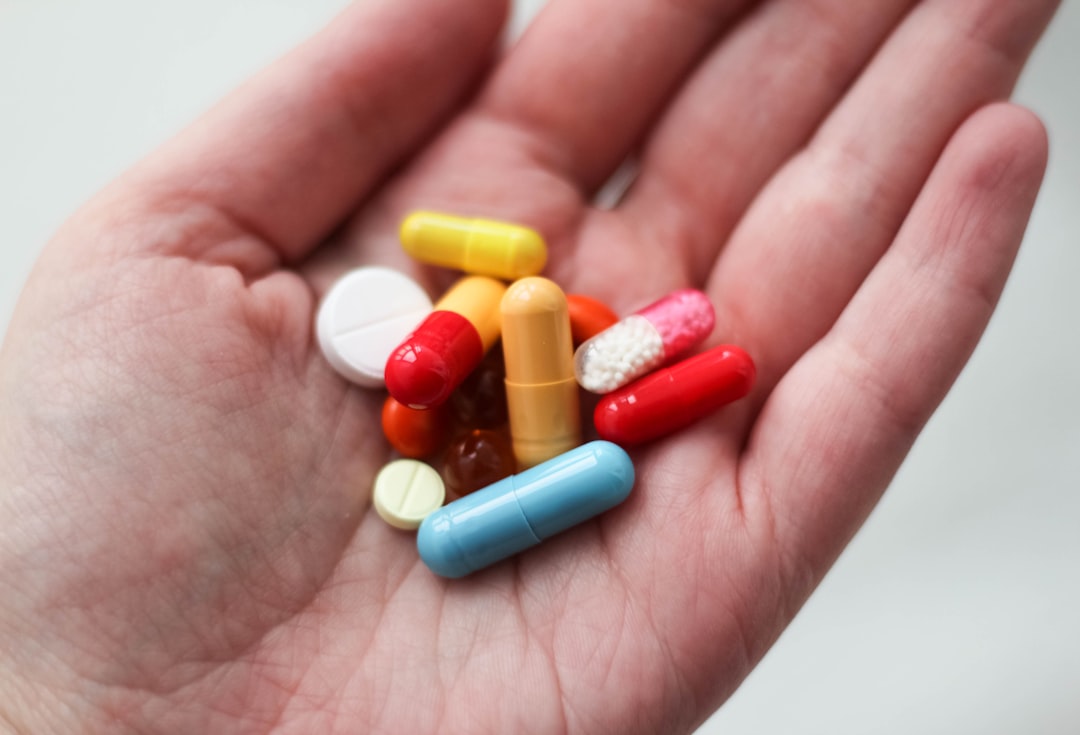Let's get started...
Understanding the Risks of Diet Pills
When it comes to weight loss promises, diet pills often seem like a magic bullet. These pills claim they can help you shed pounds easily and quickly. Marketed towards those desperate for a solution, they seem especially tempting to teenagers who are often under immense pressure to conform to certain body standards as perpetuated by social media and peer pressures. However, these tiny capsules bring with them a range of health risks and potential dangers that many aren't aware of.
The use of diet pills among teens can stem from various motivations including body image issues, peer pressure, and the desire to excel in sports where a certain physique might be favoured. These factors can make diet pills appear as an attractive option, but it's crucial to understand what exactly these pills can contain and how they affect your body.
What's Inside Diet Pills?
Diet pills can vary widely in their formulations and the substances they contain. Some are prescribed by doctors, but many are available over-the-counter or online, which can include ingredients that are not always safe. Common ingredients might include:

- Caffeine: Increases metabolism but can lead to nervousness, insomnia, nausea, increased blood pressure, and other problems when taken in large amounts.
- Ephedrine: A stimulant related to amphetamines which can boost metabolism and reduce appetite but is banned in many countries due to severe cardiovascular side effects.
- Orlistat: Blocks the amount of fat your body absorbs but can lead to gastrointestinal issues like oily spotting and frequent, urgent bowel movements.
- Laxatives and diuretics: Used frequently in 'detox' pills, they cause water and waste loss but don't contribute to actual fat loss and can cause dehydration and chemical imbalances in the body.
In addition to the risks posed by these ingredients, there's also the risk of contamination and the possibility that the pills may not contain what is advertised, especially if they're bought from unreliable sources.
The Health Implications of Diet Pills
Teens who use diet pills may face numerous health challenges:
- Physical health risks: Aside from the specific side effects of the ingredients listed above, diet pills can also cause heart palpitations, restlessness, dizziness, and even severe heart issues and death in extreme cases.
- Mental health issues: The misuse of diet pills can also contribute to the development of eating disorders such as anorexia or bulimia. Additionally, the failure to achieve desired results can lead to feelings of depression and low self-esteem.
- Dependency and addiction: Some diet pills contain substances that can be addictive, leading to a cycle of abuse and withdrawal symptoms upon stopping them.
Many of these risks stem directly from the presence and nature of unchecked substances within pills or the psychological effects related to their use and purported functionalities.
Reality of Diet Pills for Weight Management
Weight loss, especially for teenagers, should not be something imposed by societal pressures or achieved through unsafe shortcuts like diet pills. Real and sustainable weight loss comes from adopting a healthy lifestyle which includes balanced nutrition and regular physical activity. It is something that should be paced and approached thoughtfully. Diet pills do not change lifestyle habits or instil the lifelong behaviours needed for healthy weight management.
Practical Steps for Healthy Living Without Diet Pills
Rather than seeking diet pills, here are practical ways to manage weight healthily:
- Eat balanced meals: Focus on including fruits, vegetables, lean proteins, and whole grains into your diet. Watching portion sizes helps too!
- Stay active: Regular physical activity can help manage weight, improve mood, and boost overall health. This doesn't mean hours at the gym; even a daily walk or a dance session in your room counts.
- Speak to a professional: If you're seriously concerned about your weight, speak to a healthcare professional like a dietitian or your GP. They can provide guidance suited to your individual needs.
- Embrace body positivity: Work on accepting your body and appreciating what it can do. Everyone's body is different; what matters is taking care of it, not manipulating it into a one-size-fits-all ideal.
Remember, the effectiveness of diet pills is highly questionable, and the risk to your health is real and significant. Opting for a lifestyle change is not only safer but also sustainable in the long term.
Finally, always consider discussing your health concerns and options with your parents or a trusted adult. They can provide support and help you make informed choices.
How are you feeling?
It is really important that when we need help, we feel able to ask for it. This could be speaking to a parent, a close friend, a teacher or someone else you trust. Sometimes it can be really hard to share our feelings with other people but if we are feeling low or don't know where to turn, sharing with others is really important. Teachers will always take you seriously and listen to your problems in confidence if you approach them for help. Likewise, parents, siblings or friends will help you if you reach out to them.
If you feel like you can't speak to anyone you know, there are people and organisations that can help support you:
- Childline - Call them on 0800 1111 any time of the day or night, every day of the week
- NSPCC - Call them on 0808 800 5000 between 10am and 4pm Monday to Friday or email them on help@NSPCC.org.uk
- The Samaritans – Call them on 116 123 any time of the day or night, every day of the week
- SANE – Call 0300 304 7000 for support (4:30pm - 10:30pm every day)
- Mind – Call 0300 123 3393 (9:00am - 6:00pm Monday to Friday)
*Sometimes we will use real life examples in our articles to aid understanding. When we do, names and ages will be changed.













